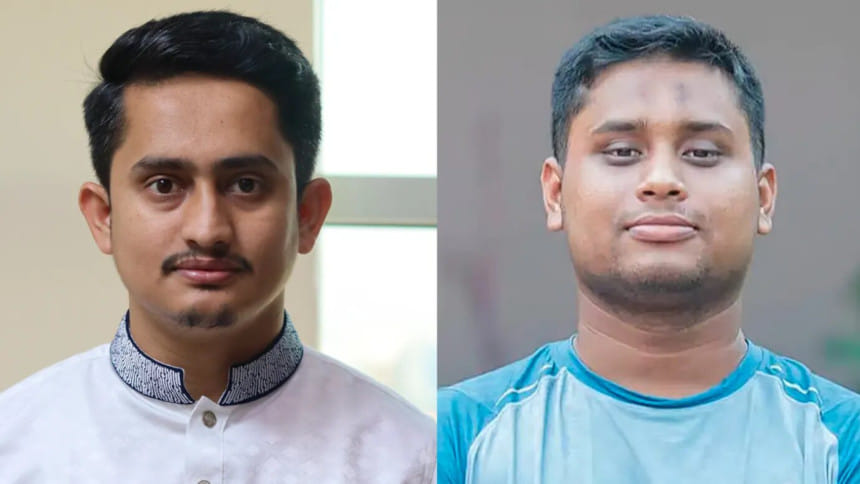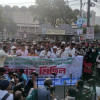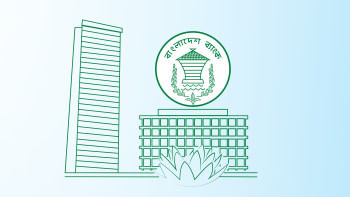Sarjis clarifies stance, diverges from Hasnat’s view

Sarjis Alam, chief organiser (northern region) of the National Citizen Party (NCP), today issued detailed clarifications regarding a meeting with the Army Chief Waker-uz-Zaman on March 11.
In a Facebook post this afternoon, Sarjis explained that he and his party colleague Hasnat Abdullah met with the army chief. Another prominent party member was also scheduled to attend but was unable due to personal issues.
"First, I'd like to clarify that we were not summoned to the cantonment; rather, whenever needed, we exchanged questions and answers with the army chief's military adviser via messages," he said.
Referring to the army chief's speech on Pilkhana Massacre Day, where he remarked, "Enough is enough," Sarjis said he had asked the chief's military adviser whether the remarks signalled any concerning developments. In response, they were offered a direct discussion.
"He asked (military adviser) if we wanted to discuss this directly, to which I replied yes. Subsequently, we met with the army chief. Only the army chief, Hasnat, and I were present in that room," Sarjis said.
Sarjis also addressed differences in how Hasnat had described the meeting on Facebook.
"Every individual perceives opinions differently. While Hasnat observed and received the chief's remarks in his own way on Facebook, I have some disagreements with his interpretation."
According to Sarjis, the army chief's remarks were not "proposals" but a "direct expression of opinion."
"There is a difference between expressing an opinion and giving a proposal. Indeed, the army chief was speaking in a significantly straightforward manner compared to before. Regarding the subject of exerting 'pressure' on a 'refined Awami League,' I did not sense that there was actual pressure. Instead, the chief confidently said that if a refined version of Awami League doesn't emerge, it would create long-term issues for the country and political parties," he said.
Sarjis acknowledged that topics mentioned in Hasnat's Facebook post—such as a "refined Awami League" and specific political figures—were discussed.
However, he added, "The tone portrayed in Hasnat's post seemed more extreme than the actual conversation, though certainly more straight-foward and so-confident than usual. It was clearly stated that the participation of a refined Awami League in elections is essential for national stability."
Citing Hasnat's Facebook post, Sarjis said: "At one point, I said—how can you forgive a party that hasn't apologised or acknowledged its crimes yet? From the other side came an irritated reply, 'You people know nothing. You lack wisdom and experience. We have been in this service for at least forty years, more than your age.'"
Clarifying the context, Sarjis added, "This conversation did happen, but it occurred when the army chief abruptly ended the meeting, stood up, and continued the conversation as he was leaving the room. While bidding farewell just before we got into our cars, this conversation took place standing. I didn't feel the chief was angry; rather, he spoke from the perspective of someone senior, emphasising his long experience compared to us juniors."
He also rejected attempts to pit individuals or institutions against each other.
"I do not endorse the narrative or slogan 'Hasnat vs Waker.' Their positions and contexts are entirely different…..Also, statements in some quarters calling for the army chief's resignation do not reflect our position," he said.
Sarjis further said, "During interim governments, political parties typically maintain discreet communication with the Bangladesh army about national situations. These conversations maintain confidentiality. Even if we disagreed with points discussed with the army chief, we could have deliberated on them in our party forums, made decisions, and taken actions accordingly…."
He criticised Hasnat's decision to publicly disclose details of the discussion, saying, "Sharing these discussions directly via Facebook status, as happened, seems inappropriate to me. Such actions might create trust issues in future critical dialogues with any stakeholder."
Despite his disagreements, Sarjis reaffirmed his support for Hasnat.
"We remain committed to standing by Hasnat if he faces threats. Yet, when corrections from my perspective are necessary, I will provide them openly. This moral clarity guided us to stand at the forefront during the initial protests against the quota system at Shaheed Minar on June 6."
"Our fight will continue against any version of Awami League involved in the July massacres, BDR killings, or Shapla Square killings entering Bangladeshi politics," he added.

 For all latest news, follow The Daily Star's Google News channel.
For all latest news, follow The Daily Star's Google News channel. 










Comments